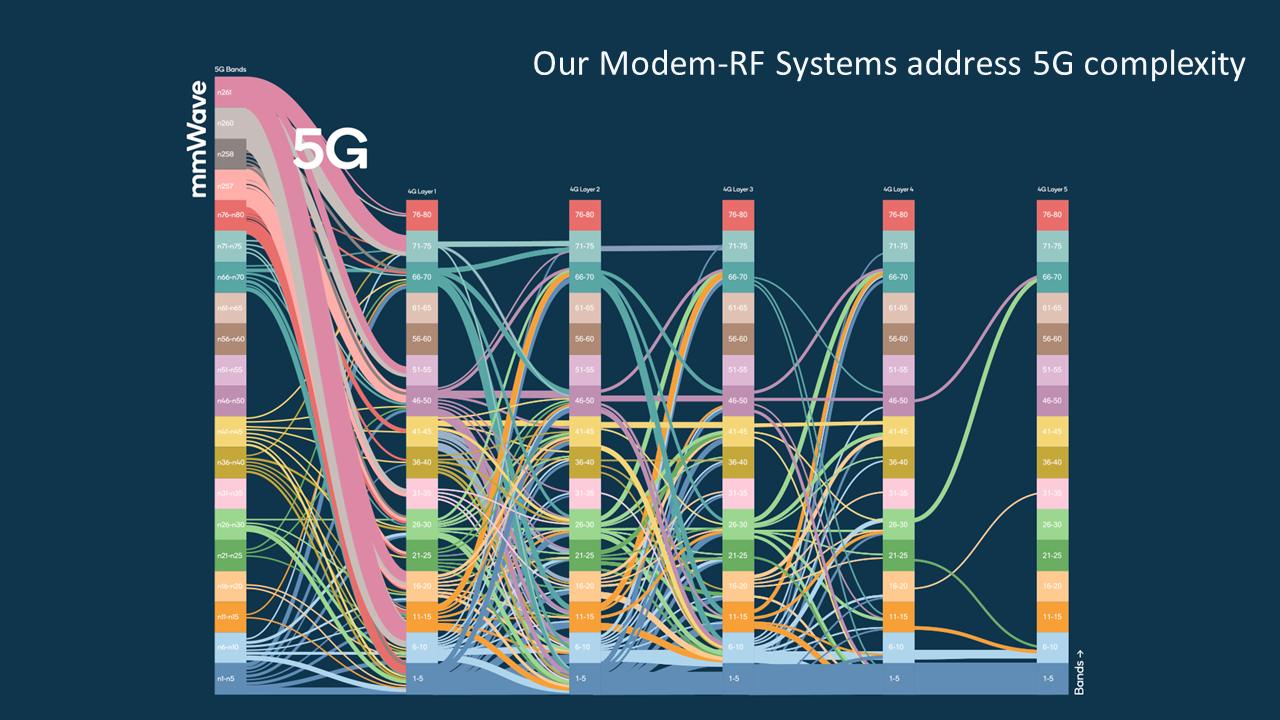5G carrier aggregation
T-Mobile US, Ericsson, and Qualcomm test 5G carrier aggregation with 6 component carriers
T-Mobile US, in a partnership with Ericsson and Qualcomm Technologies, has successfully tested the aggregation of six component carriers in sub-6 GHz spectrum in its live production 5G network.
The test involved aggregating two channels of 2.5 GHz, two channels of PCS spectrum and two channels of AWS spectrum, according to T-Mobile US, which produced an “effective 245 MHz of aggregated 5G channels.”
T-Mo said that they were able to “achieve download speeds of 3.6 Gbps in sub-6 GHz spectrum. That’s fast enough to download a two-hour HD movie in less than 7 seconds!”
5G carrier aggregation allows T-Mobile to combine multiple 5G channels (or carriers) to deliver greater speed and performance. In this test, the Un-carrier merged six 5G channels of mid-band spectrum – two channels of 2.5 GHz Ultra Capacity 5G, two channels of PCS spectrum and two channels of AWS spectrum – creating an effective 245 MHz of aggregated 5G channels.

Image Courtesy of Qualcomm Technologies
“We are pushing the boundaries of wireless technology to offer our customers the best experience possible,” said Ulf Ewaldsson, President of Technology at T-Mobile. “With the first and largest 5G standalone network in the country, T-Mobile is the only mobile provider serving 10s of millions of customers to unleash new capabilities like 5G carrier aggregation nationwide, and I am so incredibly proud of our team for leading the way.”
T-Mobile US announced in May of 2023 that it was rolling out four component-carrier aggregation across its 5G Standalone network, which it said at the time can achieve peak speeds of 3.3 Gbps. In that case, T-Mobile US relies on two 2.5 GHz channels, one 1.9 GHz channel and one 600 MHz channel. The first device able to access 4CA capabilities was the Samsung Galaxy S23.
The carrier also touted its testing of five-component-carrier aggregation in sub-6 GHz spectrum at last year’s Mobile World Congress Barcelona. In that trial, working with Nokia and Qualcomm, T-Mo aggregated two FDD and three TDD carriers and achieved peak downlink throughput speeds that exceeded 4.2 Gbps.
T-Mobile claims to be the leader in 5G, delivering the country’s largest, fastest and most awarded 5G network. The Un-carrier’s 5G network covers more than 330 million people across two million square miles — more coverage area than AT&T and Verizon combined. 300 million people nationwide are covered by T-Mobile’s super-fast Ultra Capacity 5G with over 2x more square miles of coverage than similar offerings from the Un-carrier’s closest competitors.
References:
https://www.ericsson.com/en/ran/carrier-aggregation


